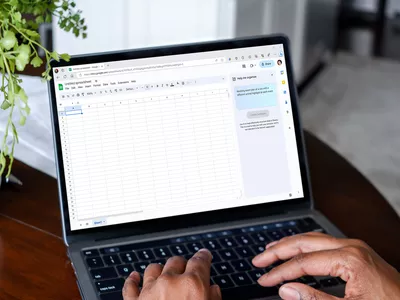
New A Countdown Effect Is Widely Used in Gaming and Report Videos. So How to Create Your Own Countdown Video? This Article Will Tell You some Ideas About Contdown Video Editing for 2024

A Countdown Effect Is Widely Used in Gaming and Report Videos. So How to Create Your Own Countdown Video? This Article Will Tell You some Ideas About Contdown Video Editing
Have you ever wanted to use Adobe After Effects to recreate a countdown timer for a rocket launch or simply create a suspenseful moment in a video by displaying how the time runs out? This tutorial will show you how. It is imperative that you become familiar with the process of creating a countdown in After Effects.
In this article, we will demonstrate how to use Adobe After Effects to put together a countdown video. This procedure is a straightforward one, and it will handle expressions as well as plugins. Stay here and read on to find out more about the various methods in which we might accomplish this goal!
Let’s begin!
Part 1. Create a new composition
It’s possible that you only want to show the minutes and seconds. Make a mask around the entire area you intend to use in order to quickly remove undesired information.
1. Create a new Text Layer.
2. Alt + Click (on a PC) or Option + Click (on a Mac) on the stopwatch in the Source Text to display text options.
3. Place the expression “timeToCurrentFormat” within the expression box (). You must set your composition frame rate to 60 frames per second in order to make it appear to be a real digital countdown timer.
4. Everything should be pre-composed, and the composition’s tempo should be reversed to make it count down. Right-click the composition and choose Time > Time Reverse Layer to change its pace.
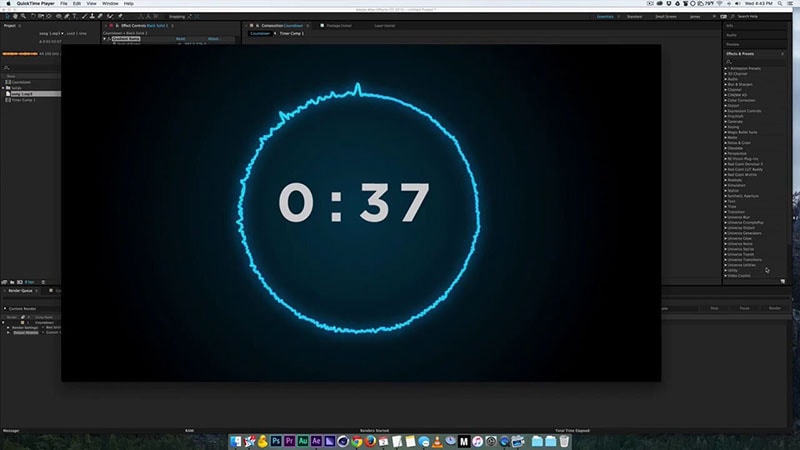
Part 2. Using the timecode plugin
To make a countdown timer, you can use the Timecode plugin rather than the “timeToCurrentFormat()” statement. The timer layout will be immediately created when the plugin is added to a New Solid; use the same steps as before to convert it to a countdown timer.
Here is a quick video that demonstrates how simple it is to set up a countdown timer in this manner:
Step1 Ctrl-click (Windows) or Command-click (Mac OS) the time display to cycle through Timecode Base or Frames/Feet + Frames (depending on whether the “Use Feet + Frames” option is checked in the Project Settings). The Timeline panel’s upper-left corner, as well as the bottoms of the Layer, Composition, and Footage panels, all indicate the current time. Timeline panel (See.)
Step2 A smaller text version of the option that is not selected in the project settings will be seen underneath. Do the following to limit the display to the Timecode or Frames option that was chosen in the Project Settings:
Step3 Choose After Effects > Preferences > Display (Mac OS) or Edit > Preferences > Display to access the display preferences window (Windows). Remove the check mark next to “Show Timecode and Frames in Timeline Panel” (this option is selected by default).
Step4 Change the time display units by selecting File > Project Settings and then selecting a different choice from the list in the Time Display Style section.
Timecode:
Displays the current time as timecode in the time rulers of the Timeline, Layer, and Footage panels. You have the option of utilizing the timecode from the source media (Use Media Source) or beginning at 00:00:00:00. To use timecode rather than frames, select the Timecode option from the menu. It is important to take note that there are no options available for changing the frame rate or whether or not to delete frames, as the source timecode is recognized and used instead.
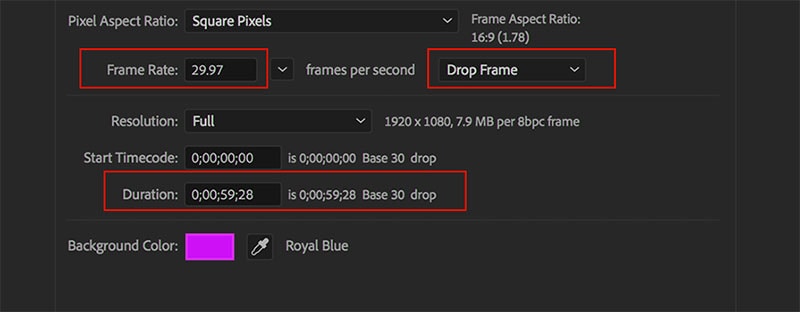
Part 3. Source timecode
Support for various file formats for the source timecode QuickTime, DV, AVI, P2, MPEG-2, MPEG-4, H.264, AVCHD, RED, XDCAM EX, XDCAM HD, and WAV image sequence importers are just some of the formats that After Effects is able to read and apply timecode for.
Project panel
The Project panel includes several columns that display the source timecode. These columns are titled as follows: Media Start, Media End, Media Duration, and Tape Name. These are the beginning, ending, and overall length of time for the source. There are columns labeled “In,” “Out,” and “Duration,” which reflect the In and Out points that the user has set in the Footage panel for the footage item or the work area for the composition, respectively. These columns also show the duration of the clip.
Context of the Project
The source timecode feature set can be found in the dialog box that is used to configure the Project. Check out the Options for Time Display Units page for more information.
Box for Configuring Composition Settings
The source timecode feature set is located in the dialog box that is called Composition Settings.
Box for Specifying Preferences
The Import section of the Preferences dialog box is capable of handling source timecode functions.
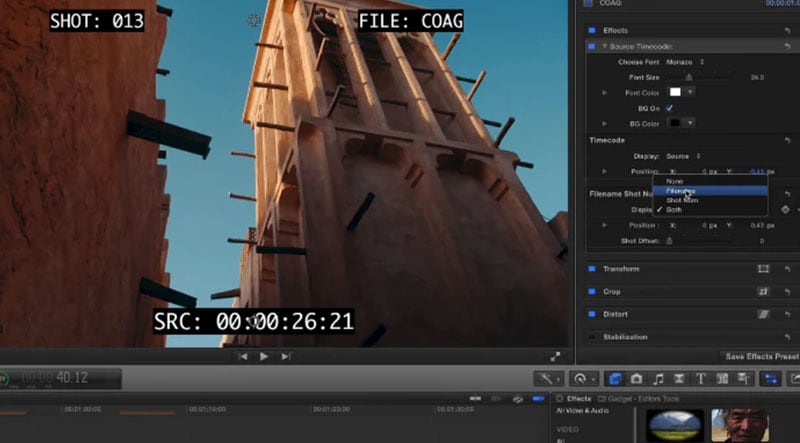
That’s it! You are now familiar with the process of creating a straightforward countdown and a countdown timer in After Effects, and you have three options to choose from. Make use of this information to give your videos an interesting spin and to round out the experience for the audience.
Free Download For Win 7 or later(64-bit)
Free Download For macOS 10.14 or later
Free Download For macOS 10.14 or later
How to Make Tutorial Video with Filmora
You may want to create your video tutorial and share your knowledge with others. Fortunately, you can easily create a professionally edited tutorial video with Filmora . Keep reading this article since we will show you how to do it.
Part 1. Recording your footage
The first step of any video is to record your footage for some tutorials like arts and cooking. You can use a camera to get the footage you need. However, sometimes you’ll need to record your computer screen, and you can do that easily in Filmora.
Free Download For Win 7 or later(64-bit)
Free Download For macOS 10.14 or later
Step1 Firstly, open Filmora on your computer. If you haven’t already downloaded it you can get it at filmora.wondershare.com. Once you open Filmora, click “File” and “Record screen.” Here you can adjust various options like recording your computer’s audio or including your webcam.
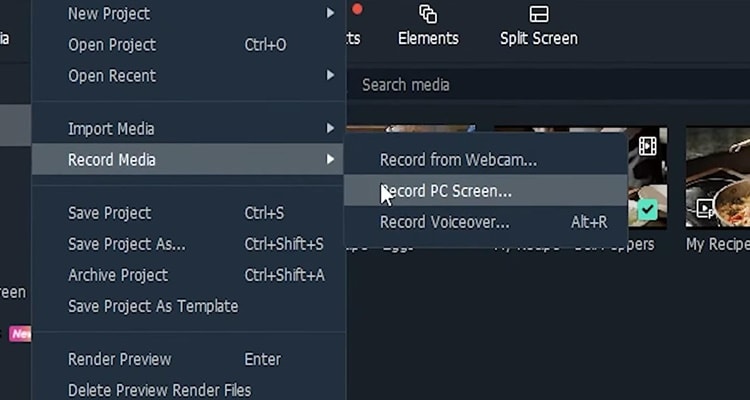
Step2 Click settings to unlock even more options. Recording at the highest quality setting is recommended in case you need to zoom in later. Also, make sure to enable the show mouse if you want your viewer to follow along with your cursor.
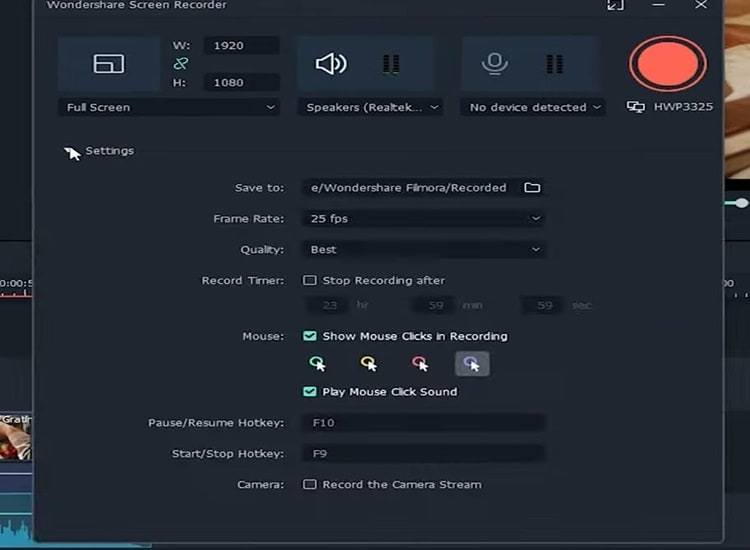
Step3 When you’re ready press these buttons to begin recording your tutorial and hit them again to finish your recording.
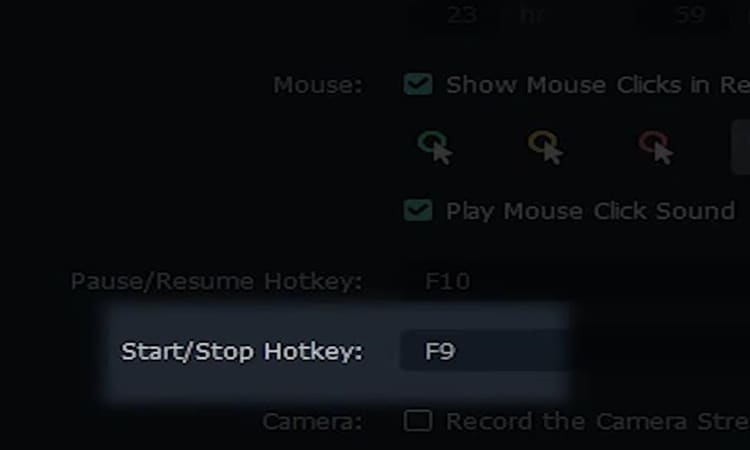
Part 2. Keep your intro short
Avoid adding any long intro monologues or skits to your tutorial. First, your goal is to be informative and entertaining. Second, it’s always best to lead with a peek at what the final result of your tutorial will look like whether it’s a video effect arts and crafts or a recipe video.
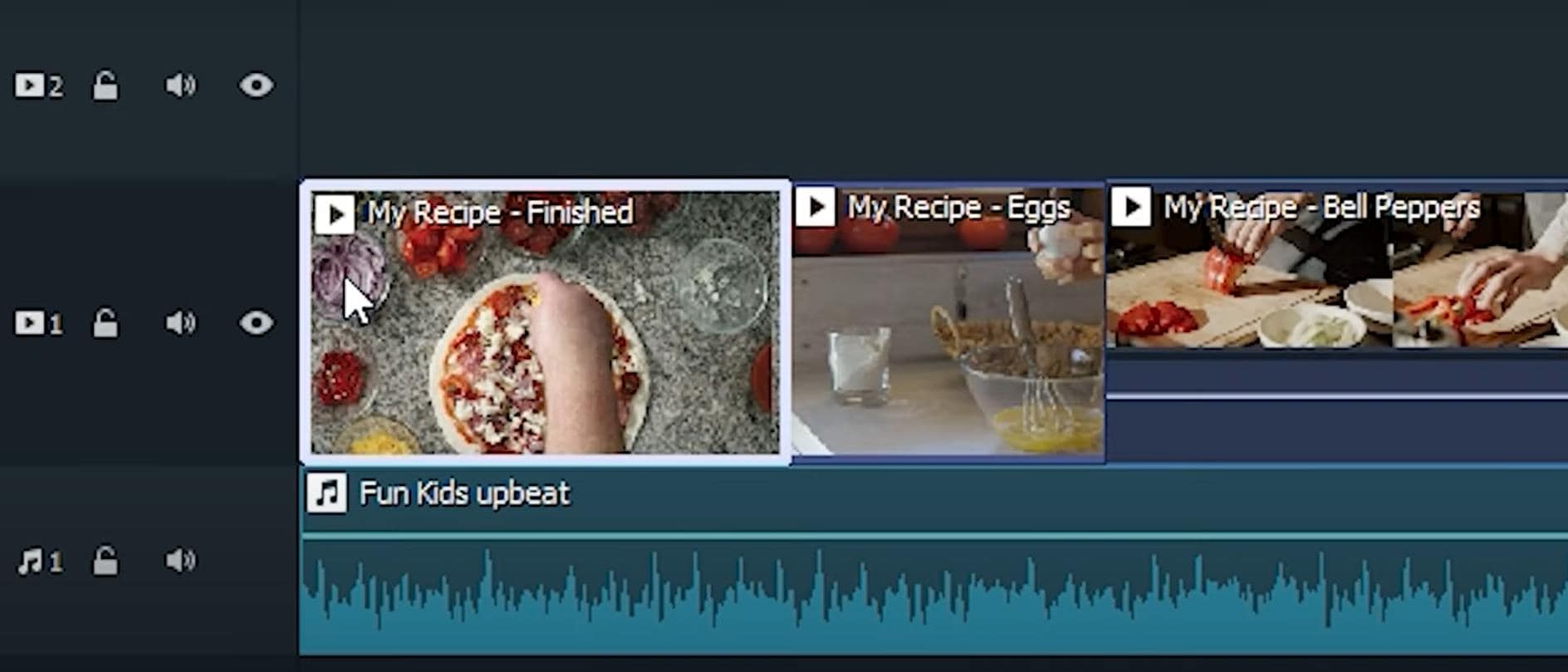
Part 3. Break down your tutorial into steps
No matter what your tutorial is about, breaking down your process into steps makes your tutorial a lot easier to understand with Filmora. You can do this in just a few minutes.
Step1 Move the playhead to where you want your first section to begin. Next, click the “Tittles” and pick a style that appeals to you.
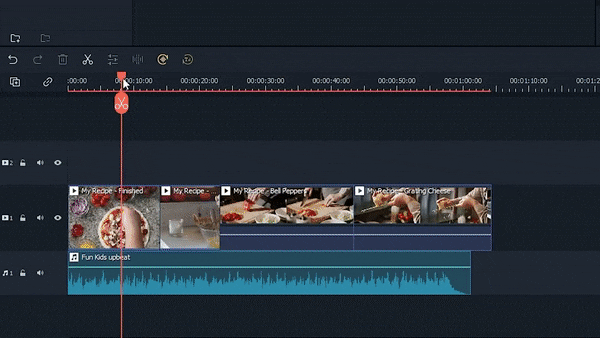
Step2 Click and drag your title on a track above your footage.
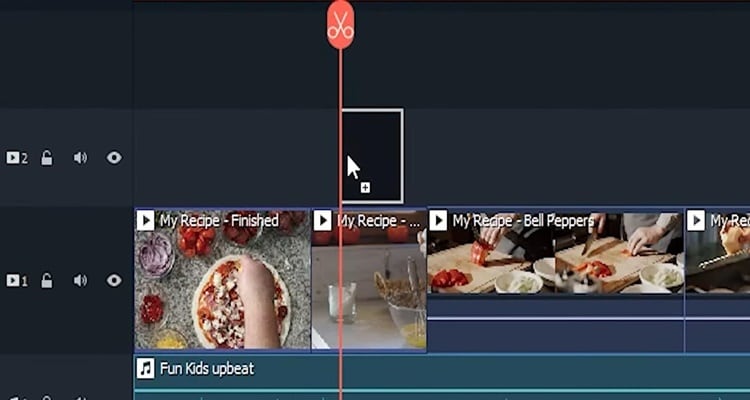
Step3 Double-click your new title and type in your section title. You can even adjust the style of the text to your liking. Repeat the process for as many steps as you’d like for your tutorial
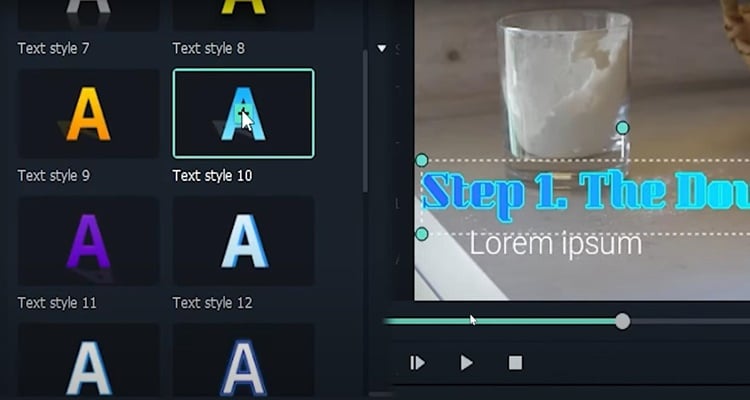
Part 4. Narrate your video
Narration is a crucial part of making an effective tutorial video. Indeed, with Filmora adding narration to your video couldn’t be easier.
Step1 Moving your playhead to the beginning of your video. Then go to file record media and record voiceover and select your microphone. The drop-down menu and click the red button, then simply narrate your video as it plays out. Your voice will automatically be recorded and placed into the project. Additionally, make sure to speak, reduce background noise, and use simple language
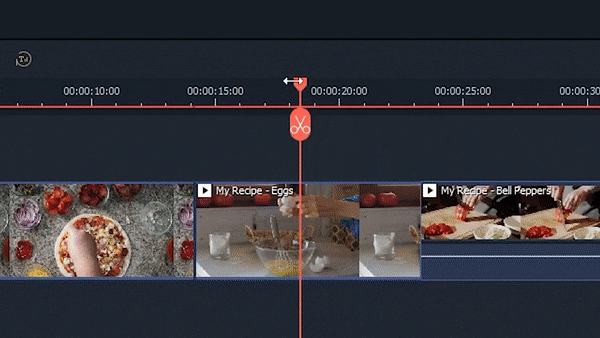
Step2 Once you’re done recording, you can adjust the volume and further edit the voiceover by double-clicking the new audio file on your timeline.
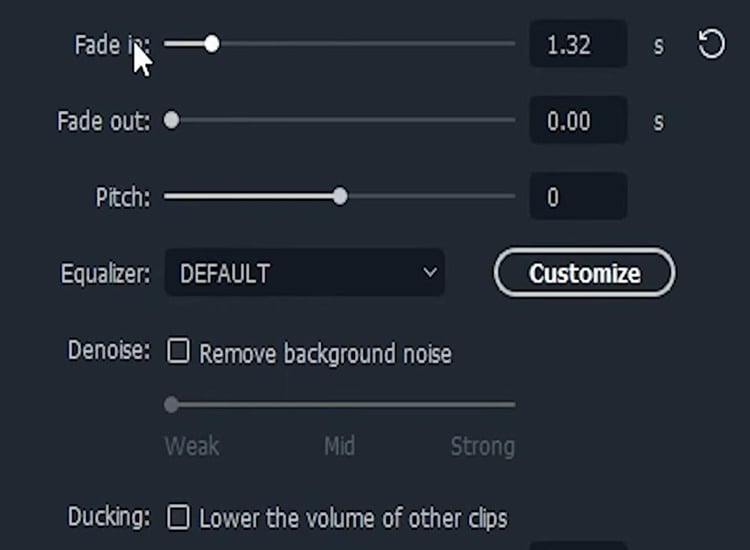
Part 5. Emphasize important steps
Since you are working in a visual medium, emphasizing critical steps visually is very important. Here are some of the easiest and most effective ways to do that in Filmora
Step1 firstly, the freeze frame. Move your playhead to the frame you want to freeze, select your clip, go to tools speed, and click add freeze frame.
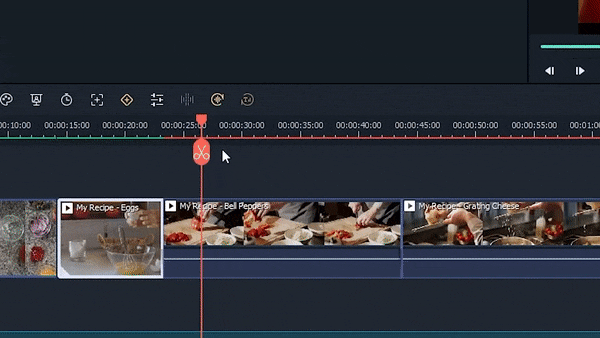
Step2 To adjust the length of your freeze, click “freeze frame.” and enter any duration you want.
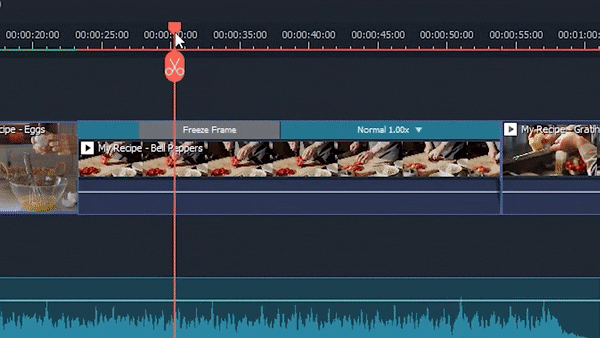
Step3 Next is about to zoom the video. Double-click your clip and click on “Animation” and then “customize.”
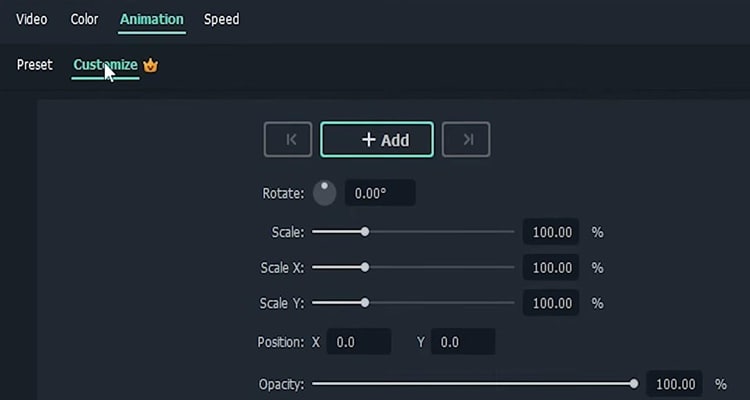
Step4 Move your playhead to where you want the zoom to begin and click “Add” to add a keyframe. Then move your playhead where you want your zoom to finish and click “Add” again.
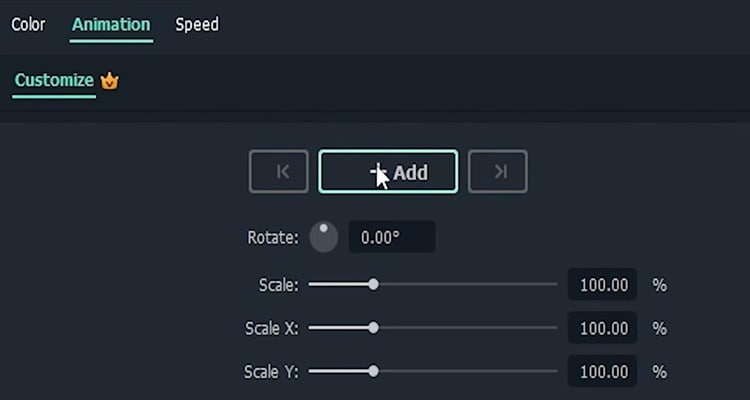
Step5 Now, you have to double-click the clip in the preview window and move and resize it to your liking.
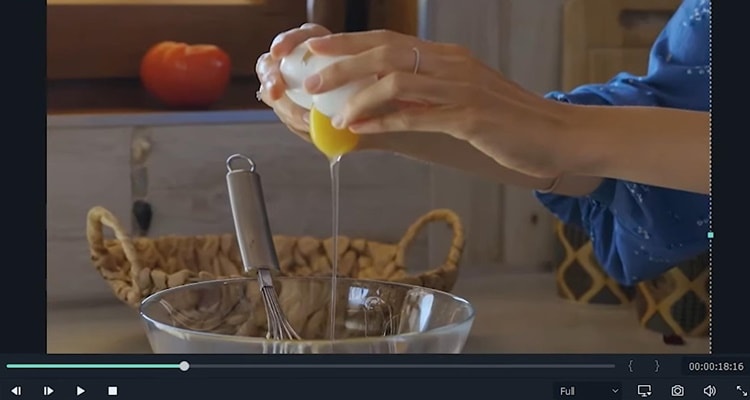
Step6 You can also use the sliders in the animation tab to do this if you want.
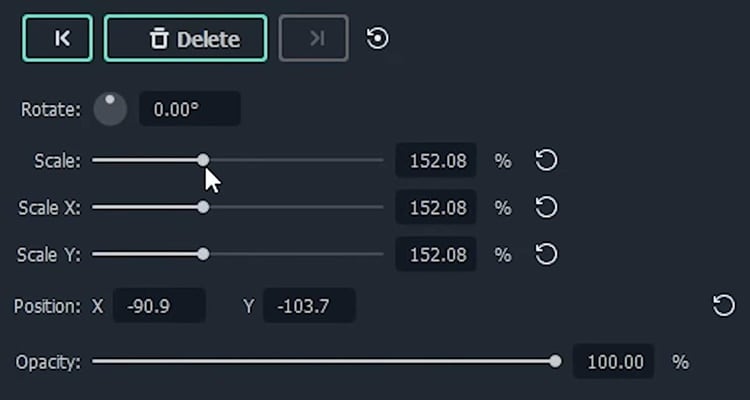
Step7 Lastly, the mask highlight. To achieve this effect, you need to duplicate your desired clip by right-clicking and clicking “Duplicate.”
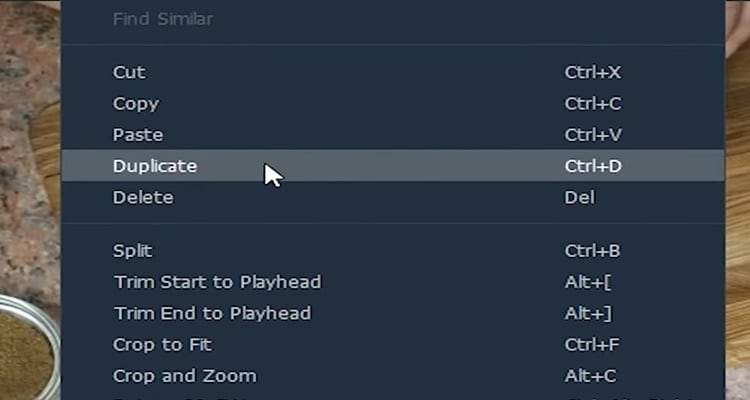
Step8 Drag the new clip to any layer above the original and make sure they’re lined up.
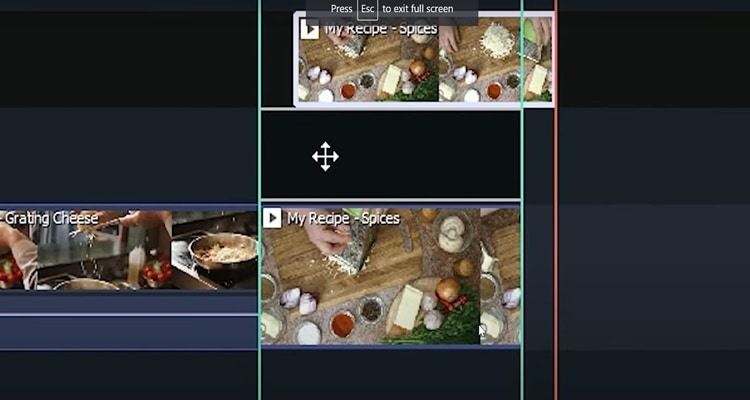
Step9 To make things easier, turn off the bottom track by clicking the eye icon.

Step10 Double-click the clip on top and go to “Video > “Mask” and .click the button to turn it on. In this tutorial, we’re going to use a “Rectangle” mask but the choice is yours.
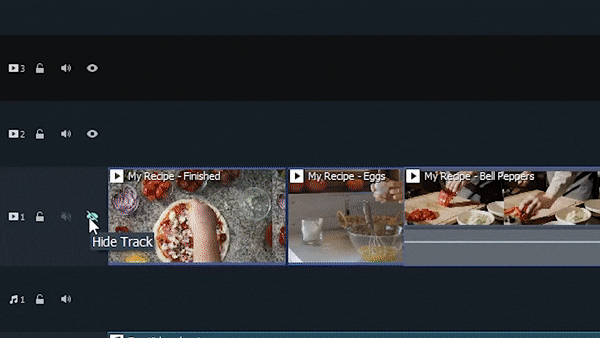
Step11 Adjust the mask size and position in the preview window to the area you want to highlight.
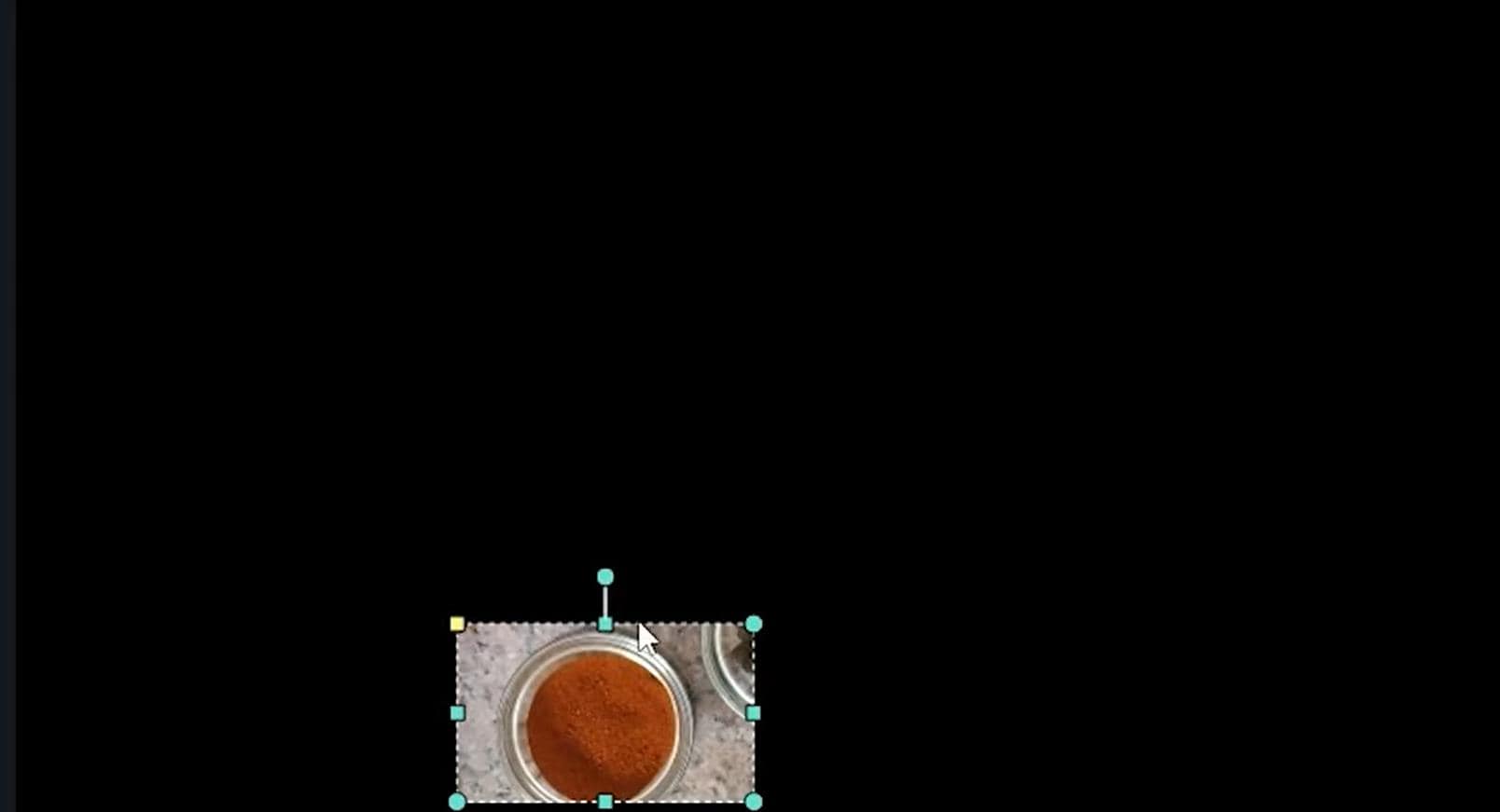
Step12 Once you’re happy with the mask’s position with the top clip, turn the bottom trackback on by clicking the eye icon.

Step13 here’s where it all comes together. Double-click the bottom clip, click on “Anmation,” and “Customize.”
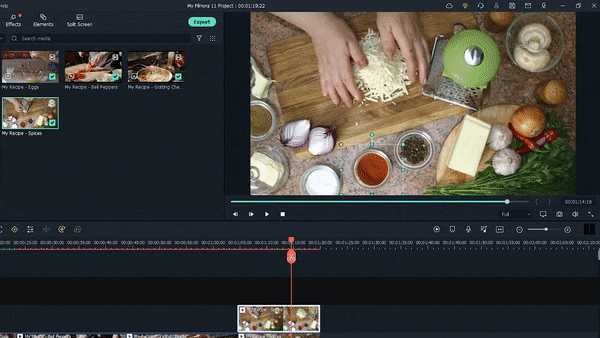
Step14 Drag the opacity slider until you’re happy with the contrast. Finally, you have a nifty mask highlight for your tutorial.
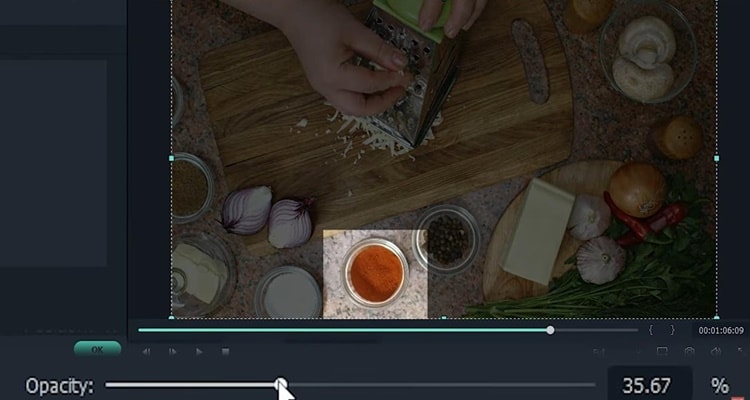
Summary
That’s how you create a tutorial video with Wondershare Filmora. Ensure you follow all the steps below to get perfect results.
Free Download For Win 7 or later(64-bit)
Free Download For macOS 10.14 or later
Free Download For macOS 10.14 or later
Step1 Firstly, open Filmora on your computer. If you haven’t already downloaded it you can get it at filmora.wondershare.com. Once you open Filmora, click “File” and “Record screen.” Here you can adjust various options like recording your computer’s audio or including your webcam.

Step2 Click settings to unlock even more options. Recording at the highest quality setting is recommended in case you need to zoom in later. Also, make sure to enable the show mouse if you want your viewer to follow along with your cursor.

Step3 When you’re ready press these buttons to begin recording your tutorial and hit them again to finish your recording.

Part 2. Keep your intro short
Avoid adding any long intro monologues or skits to your tutorial. First, your goal is to be informative and entertaining. Second, it’s always best to lead with a peek at what the final result of your tutorial will look like whether it’s a video effect arts and crafts or a recipe video.

Part 3. Break down your tutorial into steps
No matter what your tutorial is about, breaking down your process into steps makes your tutorial a lot easier to understand with Filmora. You can do this in just a few minutes.
Step1 Move the playhead to where you want your first section to begin. Next, click the “Tittles” and pick a style that appeals to you.

Step2 Click and drag your title on a track above your footage.

Step3 Double-click your new title and type in your section title. You can even adjust the style of the text to your liking. Repeat the process for as many steps as you’d like for your tutorial

Part 4. Narrate your video
Narration is a crucial part of making an effective tutorial video. Indeed, with Filmora adding narration to your video couldn’t be easier.
Step1 Moving your playhead to the beginning of your video. Then go to file record media and record voiceover and select your microphone. The drop-down menu and click the red button, then simply narrate your video as it plays out. Your voice will automatically be recorded and placed into the project. Additionally, make sure to speak, reduce background noise, and use simple language

Step2 Once you’re done recording, you can adjust the volume and further edit the voiceover by double-clicking the new audio file on your timeline.

Part 5. Emphasize important steps
Since you are working in a visual medium, emphasizing critical steps visually is very important. Here are some of the easiest and most effective ways to do that in Filmora
Step1 firstly, the freeze frame. Move your playhead to the frame you want to freeze, select your clip, go to tools speed, and click add freeze frame.

Step2 To adjust the length of your freeze, click “freeze frame.” and enter any duration you want.

Step3 Next is about to zoom the video. Double-click your clip and click on “Animation” and then “customize.”

Step4 Move your playhead to where you want the zoom to begin and click “Add” to add a keyframe. Then move your playhead where you want your zoom to finish and click “Add” again.

Step5 Now, you have to double-click the clip in the preview window and move and resize it to your liking.

Step6 You can also use the sliders in the animation tab to do this if you want.

Step7 Lastly, the mask highlight. To achieve this effect, you need to duplicate your desired clip by right-clicking and clicking “Duplicate.”

Step8 Drag the new clip to any layer above the original and make sure they’re lined up.

Step9 To make things easier, turn off the bottom track by clicking the eye icon.

Step10 Double-click the clip on top and go to “Video > “Mask” and .click the button to turn it on. In this tutorial, we’re going to use a “Rectangle” mask but the choice is yours.

Step11 Adjust the mask size and position in the preview window to the area you want to highlight.

Step12 Once you’re happy with the mask’s position with the top clip, turn the bottom trackback on by clicking the eye icon.

Step13 here’s where it all comes together. Double-click the bottom clip, click on “Anmation,” and “Customize.”

Step14 Drag the opacity slider until you’re happy with the contrast. Finally, you have a nifty mask highlight for your tutorial.

Summary
That’s how you create a tutorial video with Wondershare Filmora. Ensure you follow all the steps below to get perfect results.
Free Download For Win 7 or later(64-bit)
Free Download For macOS 10.14 or later
Best Ways to Blur Zoom Background for Free
Zoom’s blurred backdrop function, as the name indicates, distorts the background of a video conversation. Use this zoom blur background download free guide if you wish to keep your personal area hidden during Zoom conversations in order to protect your privacy. There is a backdrop with a zoom blur all throughout. It hides the turmoil or other version of a mess from your colleagues, and it just slightly makes your hair appear odd. You may learn how to blur your backdrop using different operating systems from this page. We’ll walk you through a workaround to get a blurred backdrop because the functionality is presently unavailable for mobile devices.
On your updated Zoom application, this new high res zoom background tool might be useful for a variety of reasons, whether you want to protect your privacy or conceal your filthy room. Consider a scenario in which you have a Zoom meeting but your usual workspace at home is occupied. Panic sets in because you don’t have time to clean everything up or locate a private, neutral location to set up. You have features built in into Zoom to use the zoom blurred background image that would cover the area behind you, including background blurring, that’s it. This simple toggleable feature is already present in Zoom and may be used to keep your area private or to make cluttered spaces uncertain. We’ll provide you a step-by-step tutorial in this post on how to activate blurred backdrop for your next meeting.
Part 1: How to blur Zoom background on Windows
Before and during meetings, users of the official Zoom desktop client for Windows have the option to blur the backdrop. Before a meeting, login into Zoom on the desktop application to activate backdrop blur. After that, choose Settings by clicking on the profile symbol in the upper left corner. Click the “Blur” option under “Backgrounds & Filters” after making your selection. The user may attend the meeting when the backdrop becomes blurry. Here are the steps to blur a Zoom backdrop during a meeting:
During a Zoom call on Windows 10, blur your backdrop as follows:
Step1Find the bar at the bottom of the meeting screen. To make it visible, you may need to move your mouse to the bottom.

Step2Find the “Stop Video” button, which has a chevron pointing upward.

Step3Then choose “Video Settings” > “Backgrounds & Filters” by clicking the arrow.
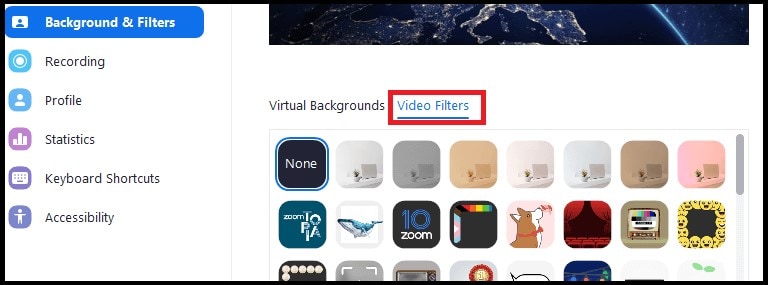
Step4Then choose “Blur,” and your backdrop will instantly seem blurred.
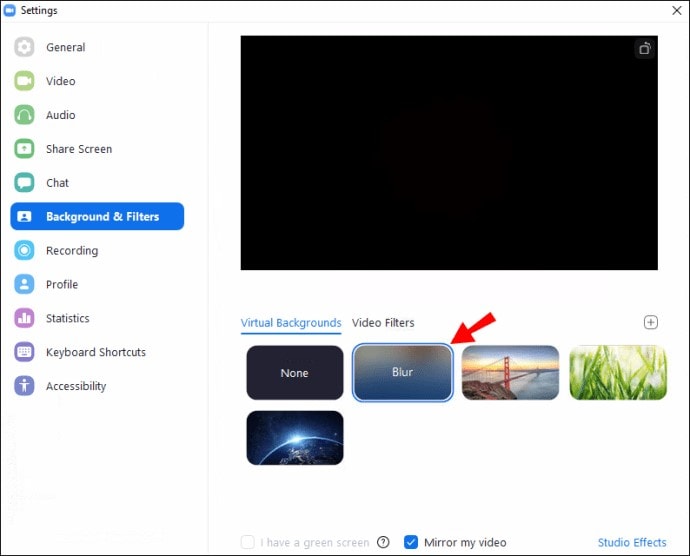
Part 2: How to blur Zoom background on Mac
Backdrop blur is the next best thing when a virtual background is unsuitable for a video conference but a consumer still needs privacy. As you can see from the description above, the blurred backdrop is just another style of the Zoom background. Customers may therefore directly adjust it from the Virtual Background setting area. Prior doing anything further, confirm that your MacBook is running the Zoom desktop client (software).
Before your Zoom call on a Mac, follow these instructions to blur your background:
Step1Start Zoom and log in to your account.
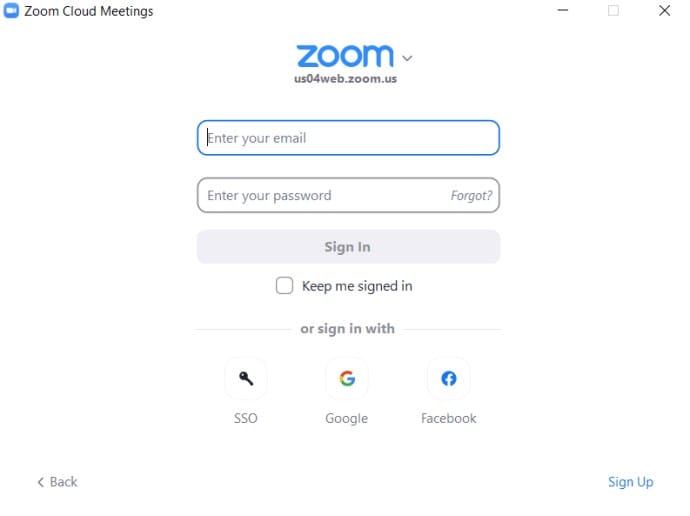
Step2In the next step, Click the “Settings” gear icon in the top-right corner and then select “Backgrounds & Filters” under Settings as shown below:
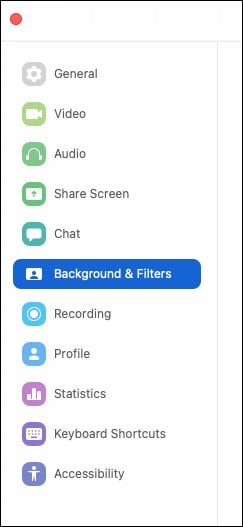
Step3Then choose “Blur,” and your backdrop will instantly seem blurred. You can also Select Stop Video by clicking the arrow next to it in the list of choices in the bar below the live video. A little list will start to appear. By using the “Choose Virtual Backdrop” option, you may choose a virtual background.

Step4Select “Blur” under the “Virtual Backgrounds” tab. You may choose a virtual backdrop from this page if you’d like. You need to verify that you have the right Zoom desktop program version and all the technical specs if you can’t locate the Blur option.
Part 3: How to Blur Zoom Background on iPhone
The option isn’t accessible on all Apple devices since a simulated or blurred backdrop requires more computing power. First, you should visit the Zoom virtual background system requirements page to see whether your device is supported. You should continue using Zoom without a virtual or blurred backdrop if your device doesn’t meet the criteria. To manually conceal your backdrop, consider standing close to a wall or sitting in a corner. Here are the instructions on how to blur your backdrop for Zoom meetings on iOS devices. Take these actions:
Step1Launch the Zoom app on your iOS phone in foremost step. To begin or join a new meeting, tap the “New Meeting” or “Join” icon.
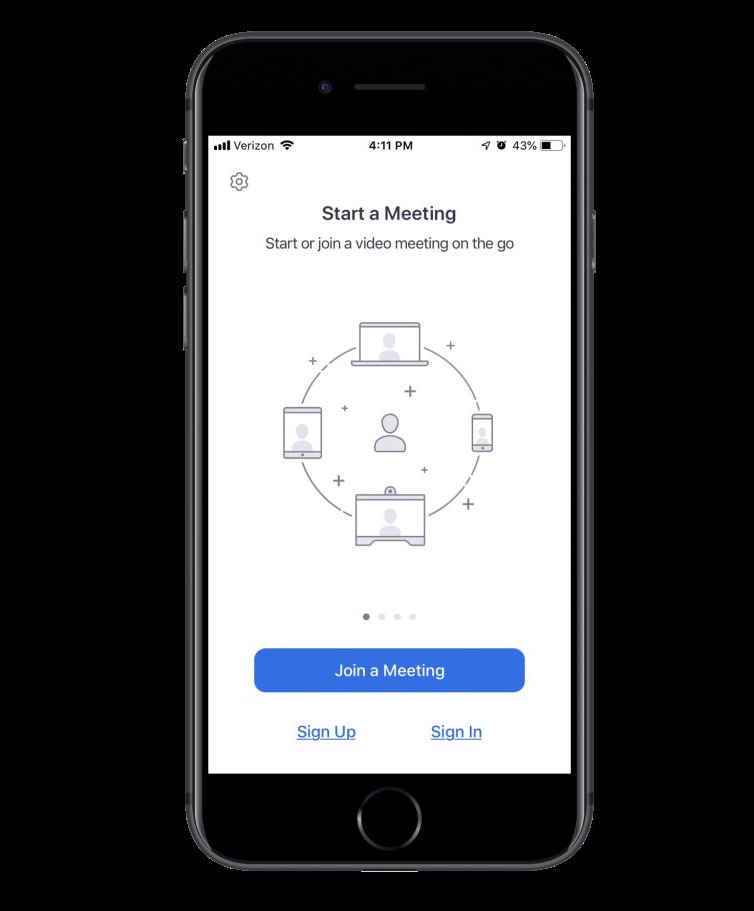
Step2During the meeting, tap anywhere on the screen to access the controls that appear below the video.
Step3Select “More” by tapping the three-dot symbol.
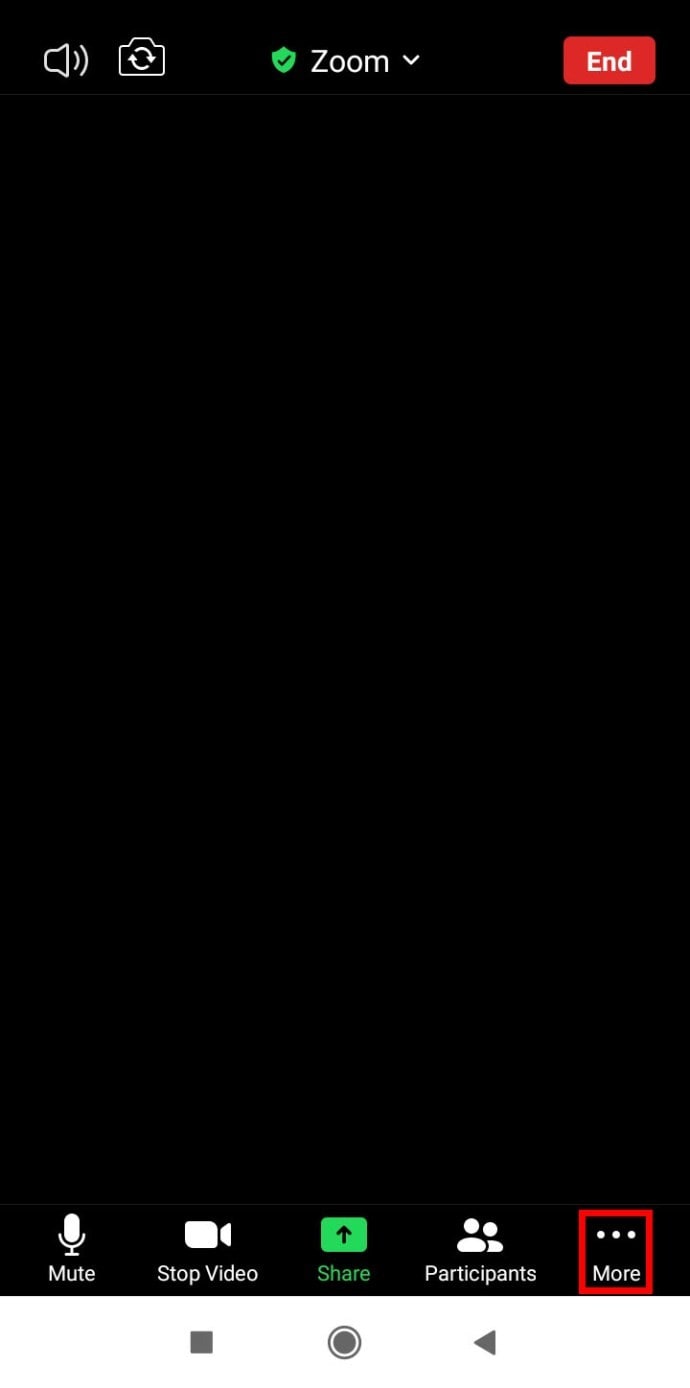
Step4A brief list will start to appear. Next, on your iOS device, choose “Background and Filters.”
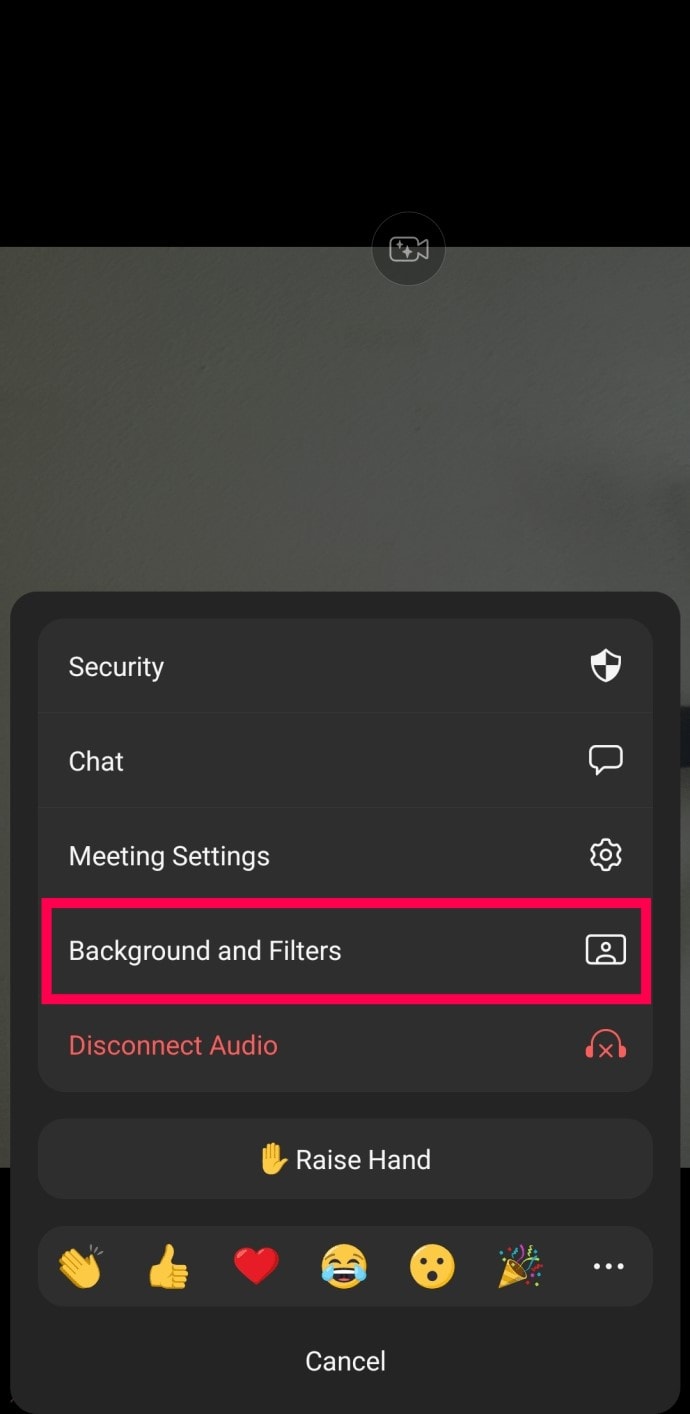
Step5Below your camera video, you’ll see a few possibilities. Tap “Blur” to make the background blurry.
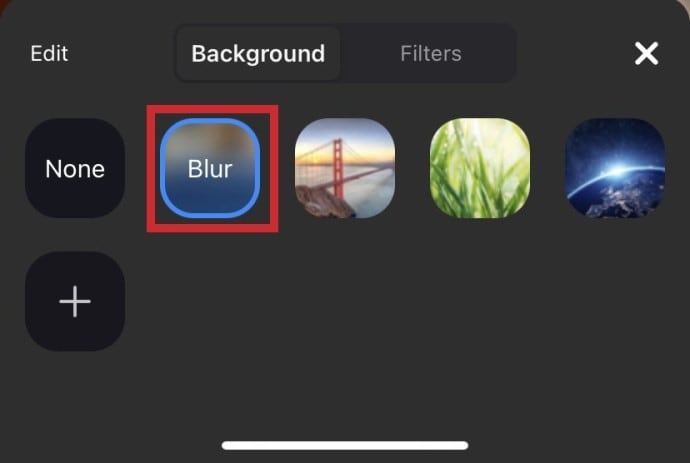
Part 4: How to blur Zoom background on Android
Additionally, Zoom blur backdrops are the ideal option for first video conversations with clients, coworkers, or supervisors. On its Android app, Zoom offers customers the option to blur their backdrop. However, there is a catch: the function can only be activated once the user has entered a meeting. If a virtual backdrop isn’t your style on Android, you may choose to blur the background instead. Everything in the backdrop will be blurred, keeping just your picture apparent throughout the conversation. Remember that all of your next meetings will have the blur function turned on. How? Read on.
Step1Only while you’re in a meeting can you alter your backdrop. Tap the More icon in the bottom right corner after joining one.

Step2Select Virtual background after that. then choose a picture from the choices offered.
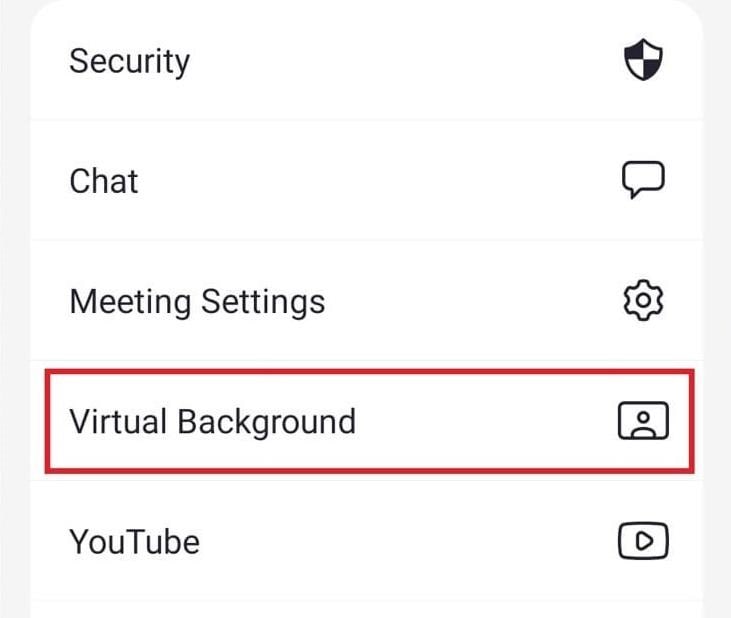
Step3The backdrop of a picture or video added from your gallery using the Add icon will likewise successfully blur the background on your Zoom Android device. Now place Zoom calls as usual, and the backdrop of your live video will be automatically blurred.
Conclusion
For individuals who prefer to obscure their surroundings while on a video conversation, Zoom’s blur background function is helpful. The function was added to the video-conferencing app in 2021 and has since gained popularity. The greatest thing you can do is choose a blur out backdrop if you can’t determine which of our Zoom background categories would best fit the video chat occasion. These are impartial backdrops that don’t necessarily depict any particular environment. They only provide a lovely, unobtrusive background that will take away any possible obstructions during the video connection. Perhaps a professional setting might be too much for a particular video chat, whilst a humorous backdrop wouldn’t work. In this situation, a blurred picture backdrop will be the difference between putting little to no effort into your call and being ready to portray yourself in the best possible way.
Zoom’s blurred backdrop function, as the name indicates, distorts the background of a video conversation. Use this zoom blur background download free guide if you wish to keep your personal area hidden during Zoom conversations in order to protect your privacy. There is a backdrop with a zoom blur all throughout. It hides the turmoil or other version of a mess from your colleagues, and it just slightly makes your hair appear odd. You may learn how to blur your backdrop using different operating systems from this page. We’ll walk you through a workaround to get a blurred backdrop because the functionality is presently unavailable for mobile devices.
On your updated Zoom application, this new high res zoom background tool might be useful for a variety of reasons, whether you want to protect your privacy or conceal your filthy room. Consider a scenario in which you have a Zoom meeting but your usual workspace at home is occupied. Panic sets in because you don’t have time to clean everything up or locate a private, neutral location to set up. You have features built in into Zoom to use the zoom blurred background image that would cover the area behind you, including background blurring, that’s it. This simple toggleable feature is already present in Zoom and may be used to keep your area private or to make cluttered spaces uncertain. We’ll provide you a step-by-step tutorial in this post on how to activate blurred backdrop for your next meeting.
Part 1: How to blur Zoom background on Windows
Before and during meetings, users of the official Zoom desktop client for Windows have the option to blur the backdrop. Before a meeting, login into Zoom on the desktop application to activate backdrop blur. After that, choose Settings by clicking on the profile symbol in the upper left corner. Click the “Blur” option under “Backgrounds & Filters” after making your selection. The user may attend the meeting when the backdrop becomes blurry. Here are the steps to blur a Zoom backdrop during a meeting:
During a Zoom call on Windows 10, blur your backdrop as follows:
Step1Find the bar at the bottom of the meeting screen. To make it visible, you may need to move your mouse to the bottom.

Step2Find the “Stop Video” button, which has a chevron pointing upward.

Step3Then choose “Video Settings” > “Backgrounds & Filters” by clicking the arrow.

Step4Then choose “Blur,” and your backdrop will instantly seem blurred.

Part 2: How to blur Zoom background on Mac
Backdrop blur is the next best thing when a virtual background is unsuitable for a video conference but a consumer still needs privacy. As you can see from the description above, the blurred backdrop is just another style of the Zoom background. Customers may therefore directly adjust it from the Virtual Background setting area. Prior doing anything further, confirm that your MacBook is running the Zoom desktop client (software).
Before your Zoom call on a Mac, follow these instructions to blur your background:
Step1Start Zoom and log in to your account.

Step2In the next step, Click the “Settings” gear icon in the top-right corner and then select “Backgrounds & Filters” under Settings as shown below:

Step3Then choose “Blur,” and your backdrop will instantly seem blurred. You can also Select Stop Video by clicking the arrow next to it in the list of choices in the bar below the live video. A little list will start to appear. By using the “Choose Virtual Backdrop” option, you may choose a virtual background.

Step4Select “Blur” under the “Virtual Backgrounds” tab. You may choose a virtual backdrop from this page if you’d like. You need to verify that you have the right Zoom desktop program version and all the technical specs if you can’t locate the Blur option.
Part 3: How to Blur Zoom Background on iPhone
The option isn’t accessible on all Apple devices since a simulated or blurred backdrop requires more computing power. First, you should visit the Zoom virtual background system requirements page to see whether your device is supported. You should continue using Zoom without a virtual or blurred backdrop if your device doesn’t meet the criteria. To manually conceal your backdrop, consider standing close to a wall or sitting in a corner. Here are the instructions on how to blur your backdrop for Zoom meetings on iOS devices. Take these actions:
Step1Launch the Zoom app on your iOS phone in foremost step. To begin or join a new meeting, tap the “New Meeting” or “Join” icon.

Step2During the meeting, tap anywhere on the screen to access the controls that appear below the video.
Step3Select “More” by tapping the three-dot symbol.

Step4A brief list will start to appear. Next, on your iOS device, choose “Background and Filters.”

Step5Below your camera video, you’ll see a few possibilities. Tap “Blur” to make the background blurry.

Part 4: How to blur Zoom background on Android
Additionally, Zoom blur backdrops are the ideal option for first video conversations with clients, coworkers, or supervisors. On its Android app, Zoom offers customers the option to blur their backdrop. However, there is a catch: the function can only be activated once the user has entered a meeting. If a virtual backdrop isn’t your style on Android, you may choose to blur the background instead. Everything in the backdrop will be blurred, keeping just your picture apparent throughout the conversation. Remember that all of your next meetings will have the blur function turned on. How? Read on.
Step1Only while you’re in a meeting can you alter your backdrop. Tap the More icon in the bottom right corner after joining one.

Step2Select Virtual background after that. then choose a picture from the choices offered.

Step3The backdrop of a picture or video added from your gallery using the Add icon will likewise successfully blur the background on your Zoom Android device. Now place Zoom calls as usual, and the backdrop of your live video will be automatically blurred.
Conclusion
For individuals who prefer to obscure their surroundings while on a video conversation, Zoom’s blur background function is helpful. The function was added to the video-conferencing app in 2021 and has since gained popularity. The greatest thing you can do is choose a blur out backdrop if you can’t determine which of our Zoom background categories would best fit the video chat occasion. These are impartial backdrops that don’t necessarily depict any particular environment. They only provide a lovely, unobtrusive background that will take away any possible obstructions during the video connection. Perhaps a professional setting might be too much for a particular video chat, whilst a humorous backdrop wouldn’t work. In this situation, a blurred picture backdrop will be the difference between putting little to no effort into your call and being ready to portray yourself in the best possible way.
3 Best Motion Blur Plugins for Adobe After Effects
Adobe Effects is popularly used to add visual effects to video. Using this software, you can craft titles, intros, and outros for your videos and can also use this tool to add motion blur to your videos. If you want a more captivating and enhanced result, you can try the After Effects motion blur plugin, as discussed in this article. So, keep reading this guide to find out about the best motion blur plugins for Adobe After Effects.
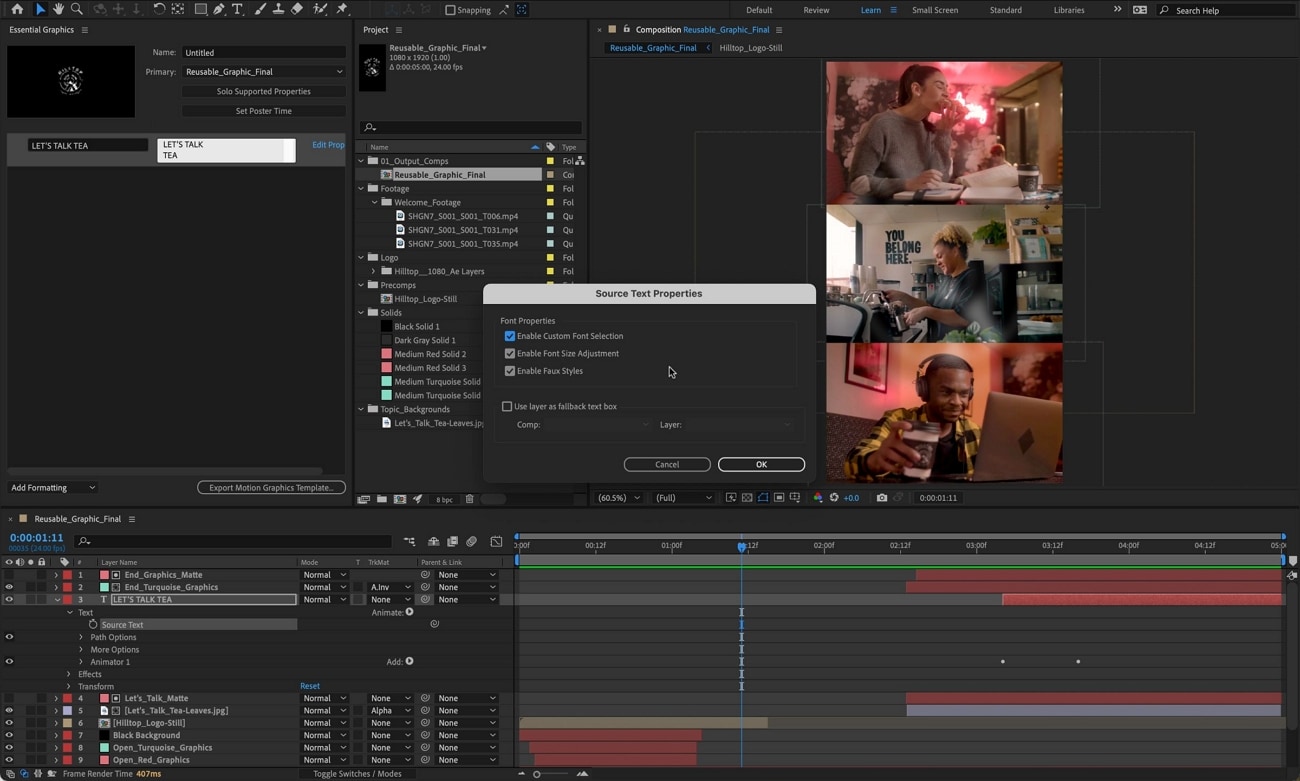
Part 1: What is Motion Blur?
If you have captured a video where you want to show the movement of a certain train, car, or any object, motion blur can smooth it naturally. If you want to show the rapid movement of fast-moving objects, the motion blur effect can enhance this motion flawlessly.
Through this effect, you can smoothen your video by adding a realistic touch to it. By doing so, you can effectively put an emphasis on any particular area in the video. Many people add this effect to racing games to add a sense of speed realistically. Hence, the motion blur effect is commonly used by video creators and editors to prevent their videos from having a choppy or unprofessional look.

Part 2: 3 Motion Blur Plugins for Adobe Effects
Are you ready to use the best motion blur plugin of After Effects? In this section, we will discuss the top 3 motion blur plugins that can help you to create a motion blur effect in After Effects.
1. RE: Vision Effects ReelSmart Motion Blur
RSMB is a powerful motion blur plugin that contains various advanced features. By adding this motion blur plugin, you can instantly add a motion blur effect to your videos without any manual effort. Moreover, within this tool, you can also adjust the amount of blur that you want to apply to your video. You can also generate compelling effects using RSMB by blurring a sequence of motion, preferably.
Price: For After Effects, the regular version costs about $109.95. Whereas for the Pro version, the cost is $169.95.
Download: ReelSmart shows great compatibility with popular software such as Premiere Pro, After Effects, and many more. However, the subscription and download plans for each software are different. So, if you want to learn more about this plugin, you can navigate to its official website .
Key Features
- RSMB uses automatic tracking for each pixel so that the motion blur effect can be applied with great precision.
- You can adjust the amount and strength of motion blur through this plugin.
- With the help of advanced technology, RSMB can use the technique of object separation. Through this capability, the plugin can easily separate background and foreground efficiently.
- You can also use RSMB to track 360 footages for adding motion blur. Due to its advanced algorithms, it easily adds a motion blur effect to 360 videos by considering the sides, bottoms, tops, and edges.
What We Like
- RSMB can use spline guidance that can help you to animate shapes to display the movement of the objects. Thus, even if this plugin encounters tracking problems, you can always guide the object’s movement.
- Apart from adding a motion blur effect, you can also use RSMB to remove this blur effect without compromising the quality of your video.
What We Don’t Like
- A wide range of advanced features is only available in the pro version of RSMB. Thus, it can be expensive for beginner users.
2. CC Force Motion Blur
You can find the CC Force Motion Blur plugin under the time category of the Effects tab. By using this effect, you can add a natural sense of motion to your video easily. Once you have chosen the CC Force Motion Blur effect, you can add various keyframes to adjust the position and movement accordingly. Moreover, if you want to add this effect flawlessly, you should add an adjustment layer first. This will help you to add and adjust the CC Force Motion Blur effect in a perfect way.
Download: It’s a built-in option in After Effects that you can find easily. So, it’s free to use and does not require downloading anything.
Tutorial: To check how to use this After Effects motion blur plugin, you can see the instructions present in this video:
3. Pixel Motion Blur
Pixel Motion Blur can also help you in creating a dynamic blur effect in your video. After adding this effect, you can set different elements such as shutter control, shutter samples, and vector detail. If you decrease the shutter samples, the rendering speed will comparatively become faster. You can also set the shutter control to automatic, which will allow you to change the composition settings.
Download: You can find the Pixel Motion Blur plugin in the interface of After Effects. Thus, you can access it without any installation.
Tutorial: Do you want to try Pixel Motion Blur? Check the steps present in this video to discover how to use this special plugin without any hassle:
Part 3: RSMB vs. CC Force vs. Pixel: Which is the Best Motion Blur Plugin?
Do you want to learn the difference between all the discussed motion blur plugins for Adobe Effects? Read this section to find out the comparison between the top 3 best motion blur plugins.
1. Render time
ReelSmart Motion Blur vs. CC Force Motion Blur
The rendering speed of RSMB is way faster than CC Force Motion Blur. Especially if you are applying a motion blur effect to the animated or 3D video, CC Force Motion Blur can take excessive time to render. Thus, RSMB is a better choice as it provides fast rendering speed along with additional features.
CC Force Motion Blur vs. Pixel Motion Blur
As compared to Pixel Motion Blur, CC Force Motion Blur has a faster rendering speed. If you have a smaller number of samples while applying the CC Force Motion Blur, the rendering speed will become faster.
2. Price
RSMB is a paid plugin for Adobe After Effects and provides different subscription plans. On the other hand, CC Force Motion Blur and Pixel Motion Blur are the built-in features of After Effects. Thus, you can access them without any cost.
Conclusion
In this article, we have shed light on the top three motion blur plugins you can easily use on After Effects. Using any motion blur plugins, you can efficiently make the movement of your objects realistic and dynamic. These After Effects motion blur plugins will help you generate more professional results.
Part 1: What is Motion Blur?
If you have captured a video where you want to show the movement of a certain train, car, or any object, motion blur can smooth it naturally. If you want to show the rapid movement of fast-moving objects, the motion blur effect can enhance this motion flawlessly.
Through this effect, you can smoothen your video by adding a realistic touch to it. By doing so, you can effectively put an emphasis on any particular area in the video. Many people add this effect to racing games to add a sense of speed realistically. Hence, the motion blur effect is commonly used by video creators and editors to prevent their videos from having a choppy or unprofessional look.

Part 2: 3 Motion Blur Plugins for Adobe Effects
Are you ready to use the best motion blur plugin of After Effects? In this section, we will discuss the top 3 motion blur plugins that can help you to create a motion blur effect in After Effects.
1. RE: Vision Effects ReelSmart Motion Blur
RSMB is a powerful motion blur plugin that contains various advanced features. By adding this motion blur plugin, you can instantly add a motion blur effect to your videos without any manual effort. Moreover, within this tool, you can also adjust the amount of blur that you want to apply to your video. You can also generate compelling effects using RSMB by blurring a sequence of motion, preferably.
Price: For After Effects, the regular version costs about $109.95. Whereas for the Pro version, the cost is $169.95.
Download: ReelSmart shows great compatibility with popular software such as Premiere Pro, After Effects, and many more. However, the subscription and download plans for each software are different. So, if you want to learn more about this plugin, you can navigate to its official website .
Key Features
- RSMB uses automatic tracking for each pixel so that the motion blur effect can be applied with great precision.
- You can adjust the amount and strength of motion blur through this plugin.
- With the help of advanced technology, RSMB can use the technique of object separation. Through this capability, the plugin can easily separate background and foreground efficiently.
- You can also use RSMB to track 360 footages for adding motion blur. Due to its advanced algorithms, it easily adds a motion blur effect to 360 videos by considering the sides, bottoms, tops, and edges.
What We Like
- RSMB can use spline guidance that can help you to animate shapes to display the movement of the objects. Thus, even if this plugin encounters tracking problems, you can always guide the object’s movement.
- Apart from adding a motion blur effect, you can also use RSMB to remove this blur effect without compromising the quality of your video.
What We Don’t Like
- A wide range of advanced features is only available in the pro version of RSMB. Thus, it can be expensive for beginner users.
2. CC Force Motion Blur
You can find the CC Force Motion Blur plugin under the time category of the Effects tab. By using this effect, you can add a natural sense of motion to your video easily. Once you have chosen the CC Force Motion Blur effect, you can add various keyframes to adjust the position and movement accordingly. Moreover, if you want to add this effect flawlessly, you should add an adjustment layer first. This will help you to add and adjust the CC Force Motion Blur effect in a perfect way.
Download: It’s a built-in option in After Effects that you can find easily. So, it’s free to use and does not require downloading anything.
Tutorial: To check how to use this After Effects motion blur plugin, you can see the instructions present in this video:
3. Pixel Motion Blur
Pixel Motion Blur can also help you in creating a dynamic blur effect in your video. After adding this effect, you can set different elements such as shutter control, shutter samples, and vector detail. If you decrease the shutter samples, the rendering speed will comparatively become faster. You can also set the shutter control to automatic, which will allow you to change the composition settings.
Download: You can find the Pixel Motion Blur plugin in the interface of After Effects. Thus, you can access it without any installation.
Tutorial: Do you want to try Pixel Motion Blur? Check the steps present in this video to discover how to use this special plugin without any hassle:
Part 3: RSMB vs. CC Force vs. Pixel: Which is the Best Motion Blur Plugin?
Do you want to learn the difference between all the discussed motion blur plugins for Adobe Effects? Read this section to find out the comparison between the top 3 best motion blur plugins.
1. Render time
ReelSmart Motion Blur vs. CC Force Motion Blur
The rendering speed of RSMB is way faster than CC Force Motion Blur. Especially if you are applying a motion blur effect to the animated or 3D video, CC Force Motion Blur can take excessive time to render. Thus, RSMB is a better choice as it provides fast rendering speed along with additional features.
CC Force Motion Blur vs. Pixel Motion Blur
As compared to Pixel Motion Blur, CC Force Motion Blur has a faster rendering speed. If you have a smaller number of samples while applying the CC Force Motion Blur, the rendering speed will become faster.
2. Price
RSMB is a paid plugin for Adobe After Effects and provides different subscription plans. On the other hand, CC Force Motion Blur and Pixel Motion Blur are the built-in features of After Effects. Thus, you can access them without any cost.
Conclusion
In this article, we have shed light on the top three motion blur plugins you can easily use on After Effects. Using any motion blur plugins, you can efficiently make the movement of your objects realistic and dynamic. These After Effects motion blur plugins will help you generate more professional results.
Also read:
- [New] 2024 Approved Instagram Video Preservation Straightforward Techniques Unpacked
- [New] Innovative iPhone Collages The Ultimate Guide to Cutting-Edge Design
- [Updated] 2024 Approved Tailored Treasure Troves The Ultimate List of Online Box Sellers
- [Updated] Discord Channel Management Made Simple Step-by-Step Tutorial
- 2024 Approved Find Out What Keyframe Interval Is, Why It Is Important, and to Change Its Value on OBS Studio with Simple and Easy-to-Follow Instructions
- Essential Tips for Xbox Live Streaming Setup for 2024
- How to Fix 'Windows Host Process (Rundll32) Has Stopped Working' Error on Your PC
- In 2024, Guide to Create a Timelapse Video in After Effects
- In 2024, How to use iSpoofer on Vivo T2x 5G? | Dr.fone
- Infuse Personal Touches Into Windows Taskbar & Menu
- New 3 In-Camera Transitions Tricks To Make Videos for 2024
- Updated 2024 Approved Guide To Creating The Perfect VHS Effect Look in Premiere Pro
- Updated How To Add Motion Blur On CapCut? (IPhone & Android) for 2024
- Updated In 2024, How To Use Speed Ramping to Create an Intense Action Footage
- Title: New A Countdown Effect Is Widely Used in Gaming and Report Videos. So How to Create Your Own Countdown Video? This Article Will Tell You some Ideas About Contdown Video Editing for 2024
- Author: Chloe
- Created at : 2025-03-01 03:56:55
- Updated at : 2025-03-04 08:13:30
- Link: https://ai-editing-video.techidaily.com/1713953297744-new-a-countdown-effect-is-widely-used-in-gaming-and-report-videos-so-how-to-create-your-own-countdown-video-this-article-will-tell-you-some-ideas-about-cont/
- License: This work is licensed under CC BY-NC-SA 4.0.